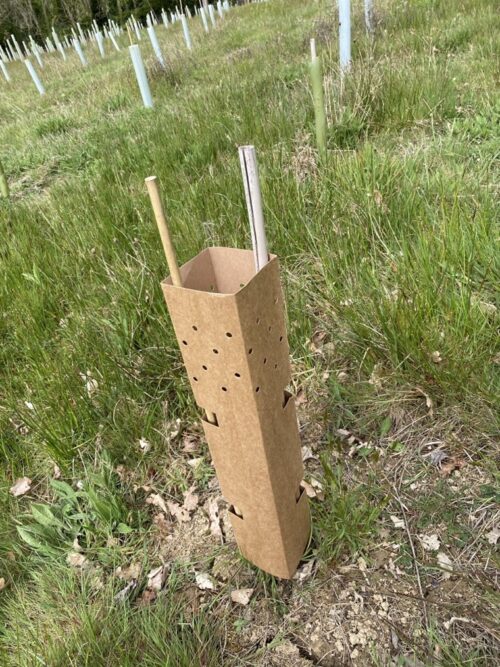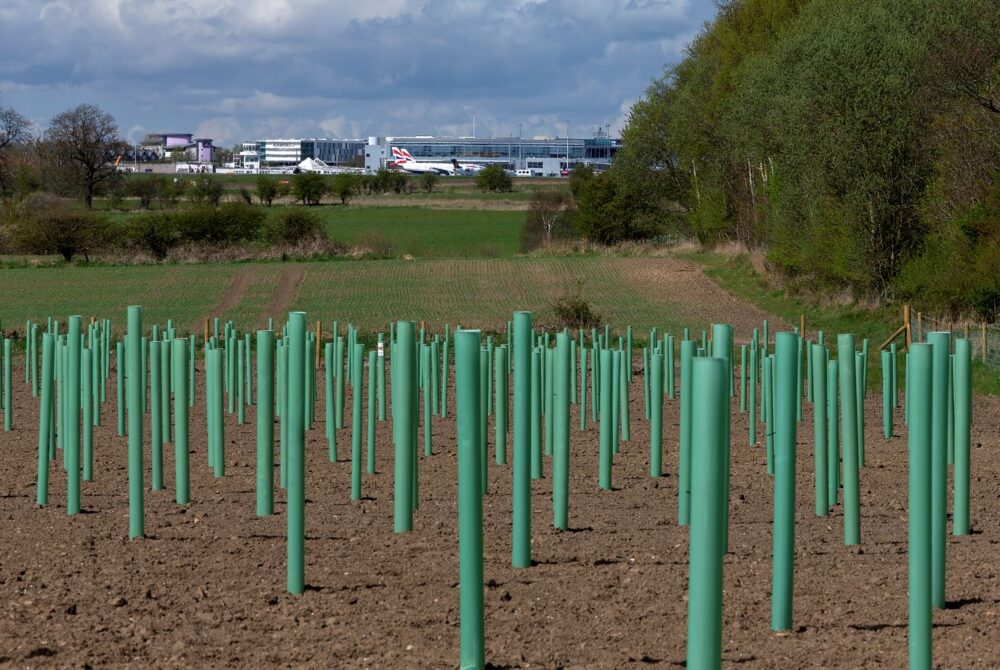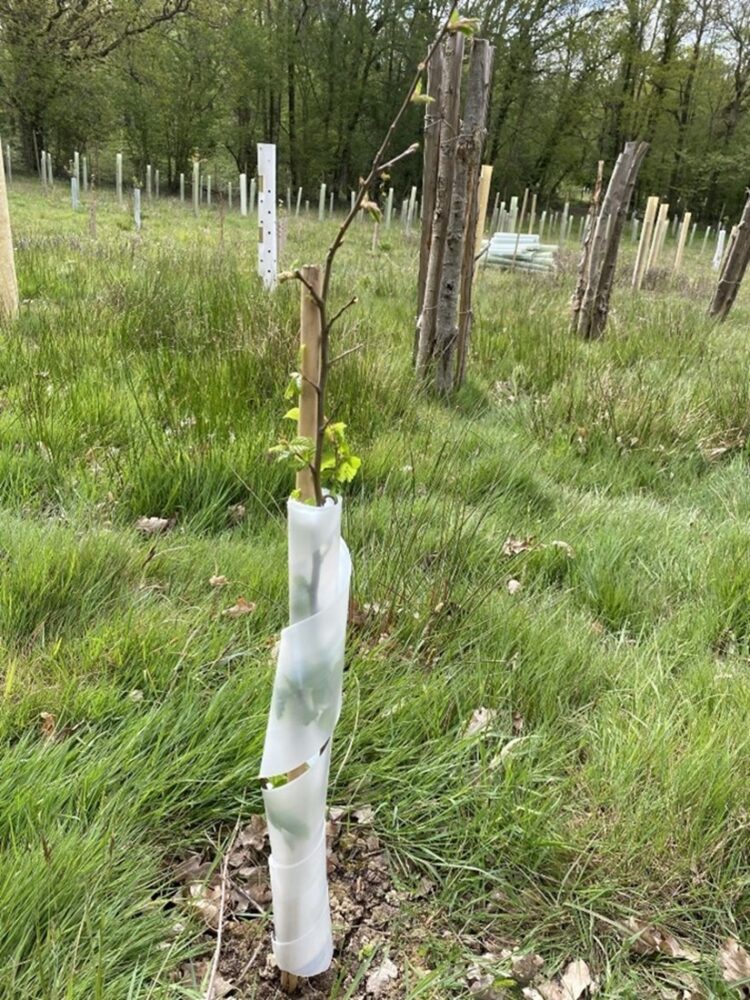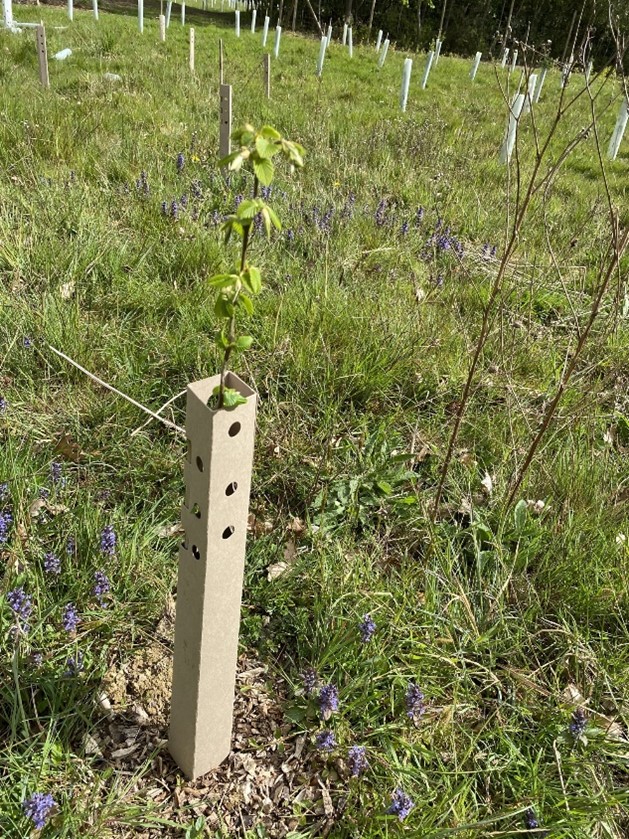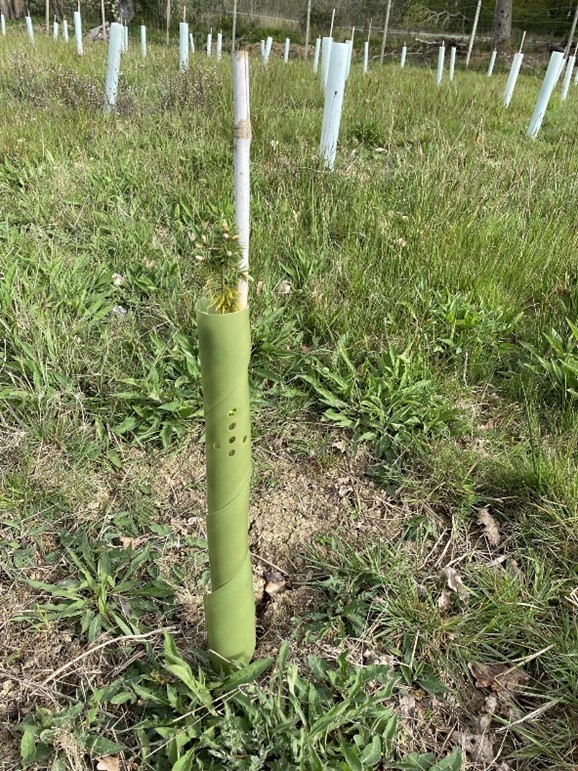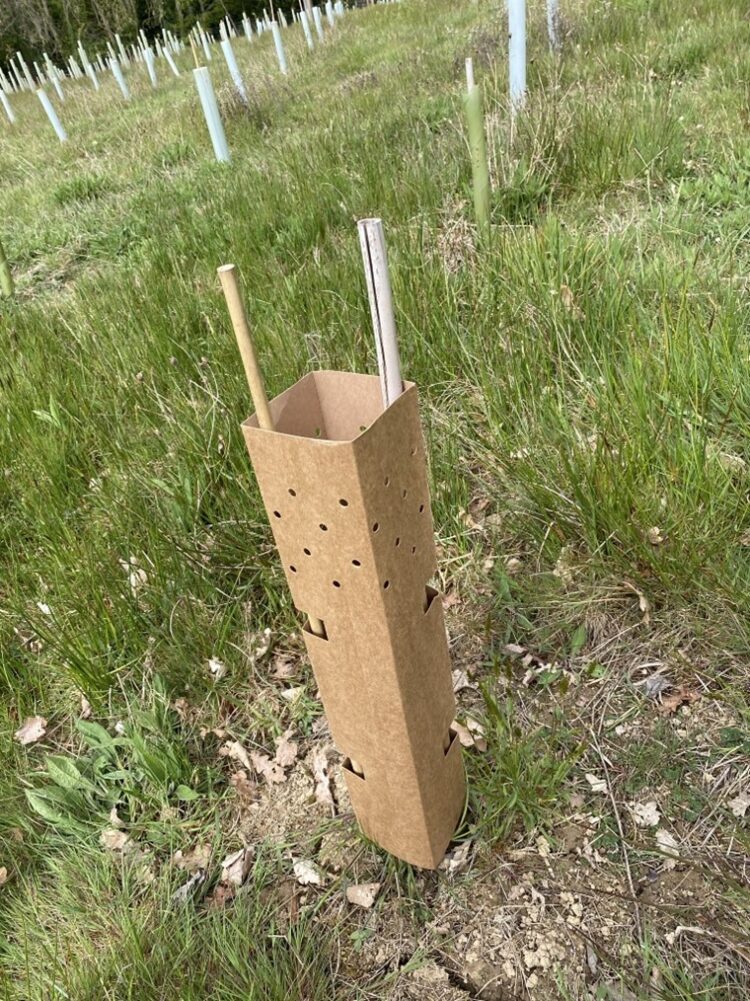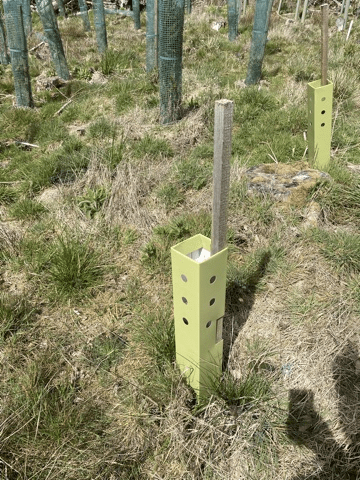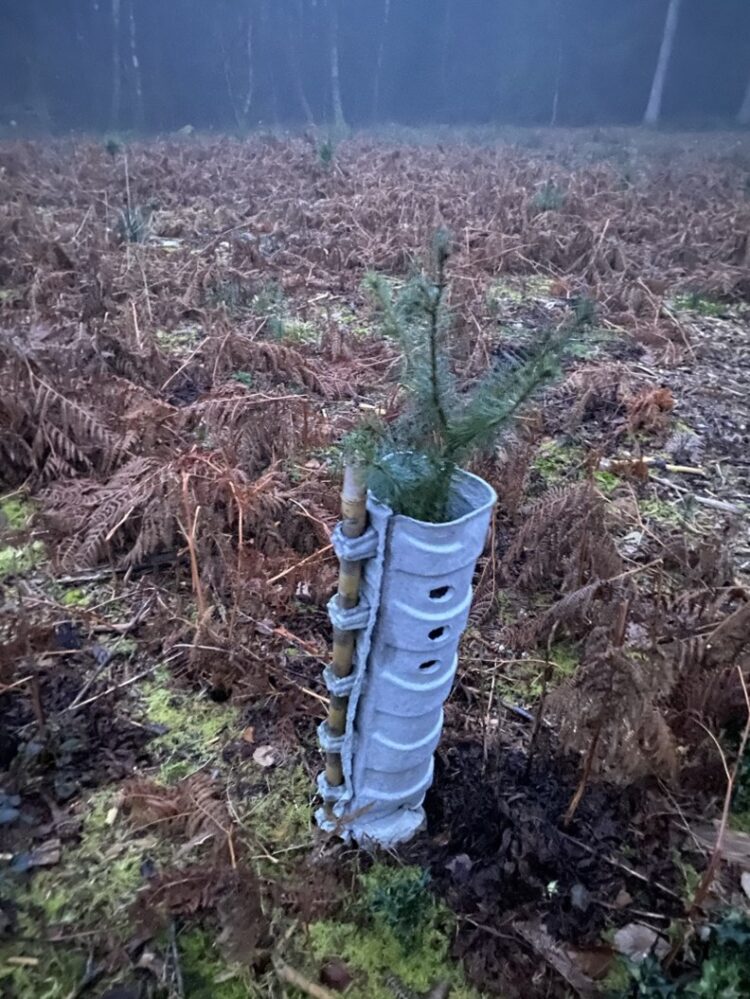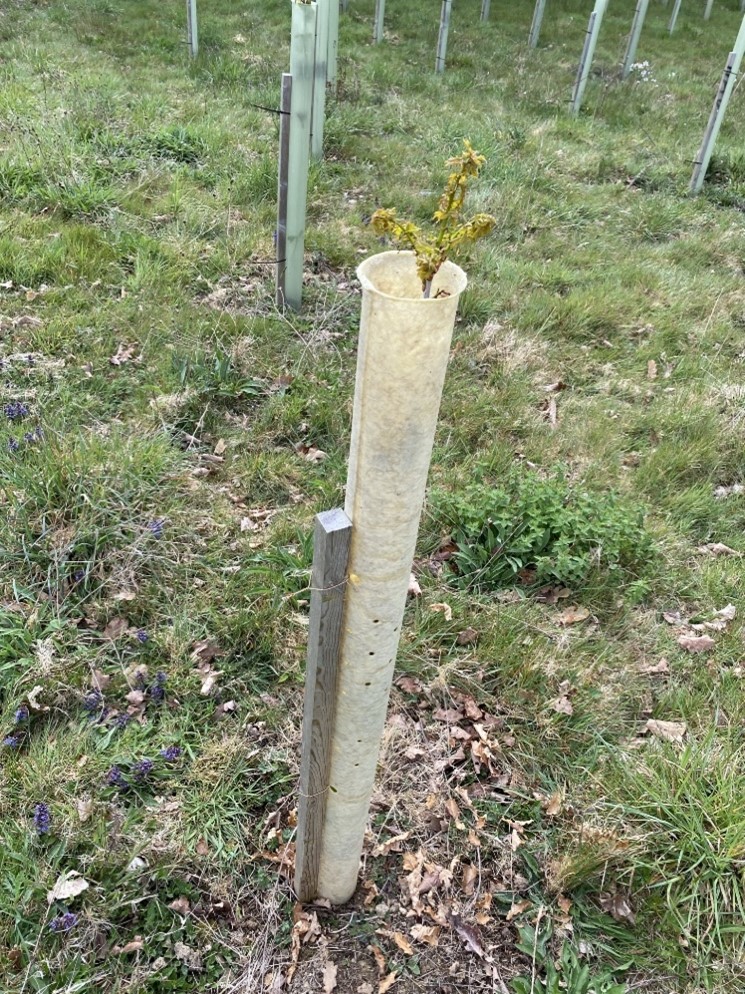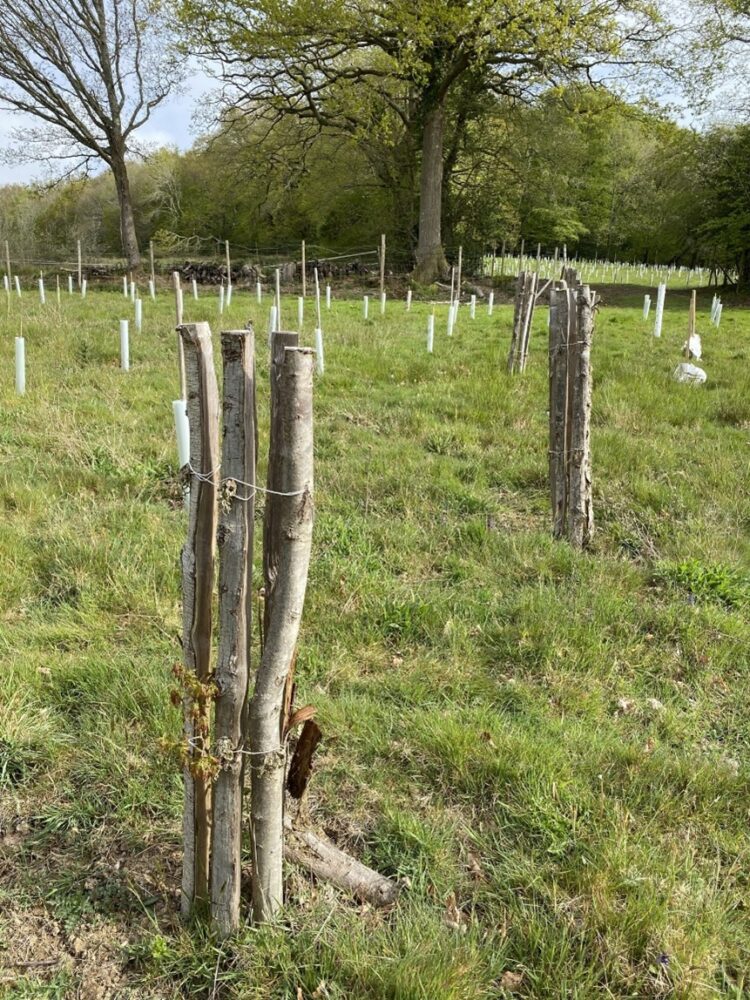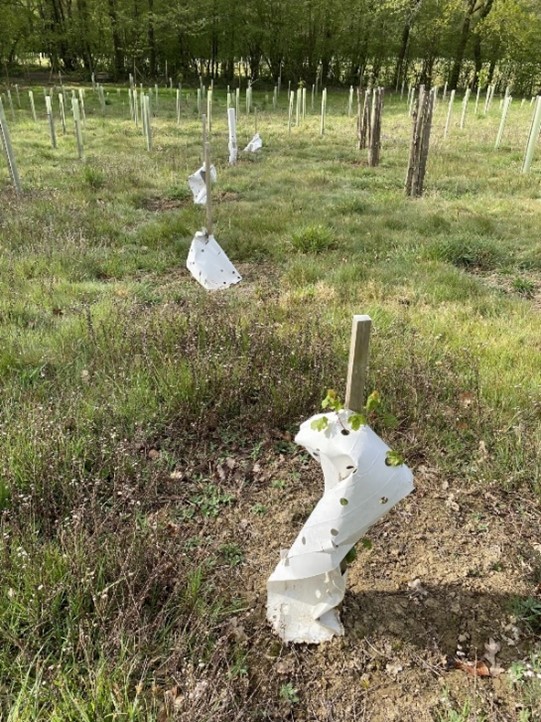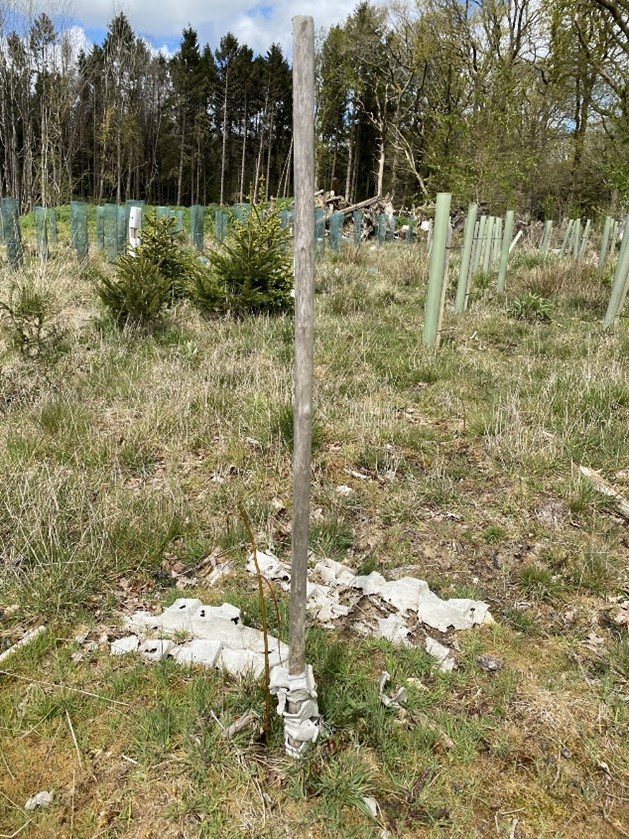When we look at how we manage these products from sourcing to disposal we must consider the waste hierarchy:
A small percentage of the total trees we plant each year are planted with the plastic tree tubes. These may be required because fencing, to protect from deer or rabbits for example, is not a viable option.
The original polypropylene tube (a by- product of the petroleum industry) has many benefits to establishing young broadleaved transplants. However, In terms of prevention of plastic waste resulting from our work, we have been looking for viable alternatives in order to support both our own sustainability projects and those clients who wish to go plastic free and move to a product manufactured from a sustainable resource.
We have been undertaking trials of the alternatives on offer including cardboard tubes and compostable spirals with a variety of results.
Where we manage forests and woodlands longer term, we will remove all tubes when they have completed their usefulness in terms of establishment and tree protection.
Reusing old tubes and the tree bags that young transplant trees are delivered in can be a challenge in terms of logistics and the biosecurity issues such items raise.
Historically, we have always gathered plastic from tree bags back to our premises and recycled them through companies such as Solway Recycling who turn this plastic into Hen Houses, picnic tables and chairs as well as other products.
We must make sure that when we recycle, the negative environmental impact is not increased by transporting plastic bags and tubes longer distances for recycling, therefore increasing carbon emissions. Where plastic has been used, sometimes the most environmentally friendly option is to send these bags for energy recovery locally.
We have a number of initiatives on the go at the moment including working with Tubex to recycle all current redundant tubes at local depots.
As the planting season moves up a gear during this month, to help support these initiatives,Tilhill follow these guidelines:
Tree Bags:
- Empty bags of any debris, soil, stones, water etc.
- Make sure any waste on site is secure, weighted down to avoid blowing away and removed from site at the end of the job.
- Keep plastic separated from other waste so we are able to send it for ‘plastic only’ recycling.
- Don’t leave bags in storage in such a way that they will fill up with rainwater before removal and disposal.
- Always check with the Tilhill Manager to see where best to drop the bags off en-route when work completes.
Tree Shelters: For tree shelters which may be collected over coming months, remove stakes and nest these together. When maintenance work starts later in the year we need to compact these for transporting for recycling.
See some images of tree tube alternatives from Tilhill’s tree tube trials
See Tree Tube Trials Update
View the plastic alternatives
